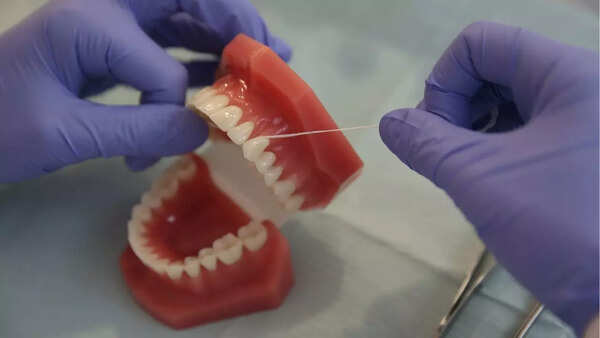
Gum disease, also known as periodontal disease, is a common condition that affects millions of people worldwide. However, its impact extends beyond oral health, with research suggesting a link between gum disease and an increased risk of heart disease.
According to Harvard Health, studies have shown that individuals with poor oral health have higher rates of cardiovascular disease. The connection between gum disease and heart health is complex, but understanding the shared risk factors and taking steps to prevent and treat gum disease can help reduce the risk of cardiovascular disease. By prioritising oral health, individuals can protect their overall well-being and reduce the risk of heart disease.
How is gum disease linked with heart health?
The relationship between gum disease and cardiovascular disease is complex. While research suggests a potential link, it's unclear whether gum disease directly causes cardiovascular disease or if common risk factors contribute to both conditions.
- Some scientists believe that the bacteria responsible for gum disease may travel through the bloodstream and trigger inflammation in blood vessels, potentially leading to heart problems.
- Others believe that it's not the bacteria themselves, but rather the body's immune response to gum disease that causes damage to blood vessels.
- It's also possible that gum disease and heart disease aren't directly linked, but rather share common risk factors, such as: Smoking: A habit that’s bad for your gums and heart and genetics: Some people might be prone to both conditions due to their genetic history
- Poor health habits, such as not taking care of your overall health by exercising regularly or not having access to good healthcare, may increase your risk of both gum disease and heart disease.
Symptoms of gum disease

Recognising the signs of gum disease is crucial for early intervention.
- Bleeding gums: Especially after brushing or flossing
- Persistent bad breath
- Swollen, tender, or red gums
- Receding gums: Making teeth appear longer
- Loose or shifting teeth
Risk factors of gum and heart disease
Gum disease and heart disease share common risk factors, including:
- Smoking: Tobacco use weakens the immune system's response to oral bacteria and contributes significantly to cardiovascular disease.
- Diabetes: Individuals with diabetes are at higher risk for gum disease and cardiovascular complications.
- Obesity: Excessive body fat promotes systemic inflammation and insulin resistance, contributing to cardiovascular disease.
- Poor nutrition: A diet high in sugar, unhealthy fats, and processed foods can contribute to gum disease and heart disease.
Prevention and treatment of gum disease
Maintaining good oral hygiene is essential for preventing gum disease and reducing the risk of heart disease. This includes:
- Brushing twice a day: Use a soft-bristled toothbrush and fluoride toothpaste.
- Floss daily: It helps remove plaque and food particles between teeth.

- Using mouthwash: Rinse your mouth with an antibacterial mouthwash to reduce bacteria.
- Regular dental visits: Schedule regular check-ups to detect and treat gum disease early.
Managing gum disease and heart health
If you have gum disease, it's essential to consult your dentist and healthcare provider to treat both conditions.
- Deep cleanings, antibiotics, and other treatments may be necessary to control gum disease
- Regular heart checkups to monitor cardiovascular risk factors and detect any problems early
- Changing your lifestyle, improving your diet, and increasing physical activity can help reduce the risk of both gum disease and heart disease.
Also read | Is eating garlic on empty stomach safe for your health ? Know its benefits and side effects

 10 hours ago
51
10 hours ago
51




























 English (US)
English (US)